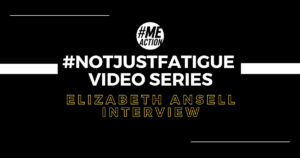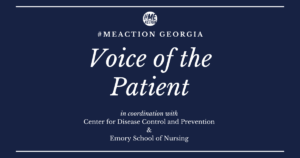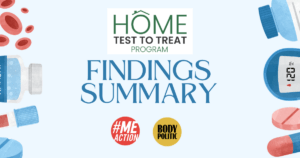#MEAction delivers Lancet PACE petition, makes Wall Street Journal

Copies of the petition, which when printed were over 400 pages, were also delivered to the UK and US offices of Psychological Medicine. The journal published a paper on recovery rates in the trial that the petition claims were based on criteria that “were weakened so far from their original form in the study protocol that they no longer represent recovery by any rational standard”.
The study authors also received a copy. The petition calls upon them to “publish the recovery outcomes according to the analyses specified in the trial’s protocol” and to give independent researchers full access to the anonymised raw data.
Press releases about the delivery of the petition have now been sent out to the UK and US media and the story has already been picked up by the Wall Street Journal in a piece by Amy Dockser Marcus.
Ms Marcus reported that the PACE authors declined to be interviewed. However, Dr Richard Horton, editor of The Lancet, told her, “When you see some things written on social media [about the ME/CFS trial and the investigators], it makes you anxious that the claims for rational scientific debate based on access to the data may not be fully delivered.” She added, “Dr. Horton says the Lancet stands by the trial findings. “
The petition was launched on October 28, 2015, and broke all records in the ME/CFS community, reaching its 10,000-signature target in 16 days. Delivery of the petition has been delayed due to health problems within the petition team.
Ollie Cornes, a 43-year-old, London-based patient who has been ill for 17 years, asked to meet with The Lancet’s editor, Dr Richard Horton, but was refused.
Mr Cornes said, “I’d said in my email that even though I was very sick, I’d travel across London to his office at a time that was convenient for him, and I’m very disappointed that he wouldn’t meet. It seems dismissive of patients’ concerns, when over 11,000 of us are reaching out to him.”
Mr Cornes added, “I really hope that the UK papers, especially, pick it up and focus attention on The Lancet. I can’t shake this feeling that medical journals are perhaps forgetting why they exist — if they think patients don’t matter, what’s the point of them?”







23 thoughts on “#MEAction delivers Lancet PACE petition, makes Wall Street Journal”
Well done to all concerned! Including the 12 000 signatories of course.
YES, ditto that!
Brilliant! Huge thanks to all who have made this possible. I wait with bated breathe as to how this event will be reported in the UK media, which, with a few honourable exceptions, has been terrible in its reporting on ME.
Well done . That was the fastest growing ME petition I’ve seen. We wanted to be news worthy and now we are.
Thank you everybody!
We will continue the work until this this scandal is revealed and things are put right!
Well done, everyone!
Awesome! Thank you!!
Anyone have the text of the WSJ article (it’s behind a pay-wall)? It would be much appreciated.
Justin, you can probably download it through your public library, just call them and ask how. It is a journal libraries would subscribe to in print and it is bundled in online subscription services they undoubtedly subscribe to as well. For that matter, many medical journals may also be bundled and/or available via interlibrary loan.
Found it:
http://www.meassociation.org.uk/2016/03/patients-scientists-fight-over-research-data-access-wall-street-journal-7-march-2016/
Great job, thank you! I like the photos too, visibly showing the number of signatories to the the petition and proof of postage 🙂
The charity Invest in ME (Research) has written to Dr. Horton – http://www.investinme.org/IIME-Newslet-1602-02.htm
Well done to those who organised this. Great to see the photos of the petitions too. Very powerful visual.
We can’t be dismissed for ever. The more they desist the more we’ll persist.
Hope they make some headway into this. My daughter in the UK has struggled with ME/CFS for 14 years now and there is no way changing mindset (CBT) or graded exercise helps a condition where evidence is increasingly showing could be linked to neurological and immunological causes.
Although I acknowledge CBT can be helpful to psychological conditions, and that suffering with ME/CFS no doubt causes some psychological impact, attributing disease improvement to use of CBT is a bit like putting the chicken before the egg.
Also, due to the relapsing nature of ME/CFS and the variable symptoms, a false association to cure could be established.
I do think that some other fatigue related conditions due to misdiagnosis due to lack of diagnostic tests have clouded the true core of long term ME/CFS sufferers and this could be why there are many weird and wonderful “cures”, that paradoxically make those who do not respond to such treatments look uncooperative.
I think 6 months with symptoms to be diagnosed is too short and may encompass a number struggling with a dose of post viral fatigue that may be self limiting and imply some do recover when in fact it is not truly whatever ME/CFS really is about.
Services in the UK rely a lot on proof or evidence from the local doctor (GP), but in reality, a lot of patients do not see the doctor because there is no treatment, and when they do visit the doctor, the doctor has little understanding or training in ME/CFS, hence patients’ medical notes may contain little evidence of seeking help. Unfortunately this often results in the sufferers getting any support because there is little evidence of their existence so they are often made out to be constructing the problem to gain financial help for dubious reasons. Some I have read, have committed suicide as a result because there is nowhere else to turn, whilst others depend on ageing parents to support them.
Thank you Lynne, that is very good summary.
Exactly! I could not have put it better!
Well said. The situation is very much as you describe it in Australia too.
And yes, the lack of medical understanding and meaningful support, including difficulties in accessing appropriate, desperately needed domestic/personal care all add immeasurably to the suffering. It is surely too much to bear for even the most positive and courageous to not only have all one’s life dreams taken away but then to find oneself subjected to scorn and derision, labelled as not really ill by doctors and service providers, and left to fend for oneself.
A massive worldwide drive to increase biomedical research of high quality is surely the key to changing currently prevailing attitudes and false beliefs that leave millions of this group of seriously ill people in this curious and surely unique limbo of almost total medical and societal neglect.
The PACE Trial data will either stand up to scientific scrutiny, or it won’t. What’s said on social media will have no influence whatsoever. Dr. Horton’s comment regarding this seems strangely irrational coming from someone in his position.
My thoughts entirely Carol. I have participated in several online debates about the PACE trial and whilst I have come across some fairly forthright views, I have seen nothing irrational or aggressive or “vexatious” in any way. Much is made by the authors of the so-called attacks on them yet no evidence to support their claims is ever given. In fact the only irrational, vexatious items I have seen are the PACE trial itself and the irrational refusal to publish the data.
It surprises me researchers are not required to release criteria for their study to maintain research integrity. Criteria is provided at the beginning of the study, but it is just as important to prove it was maintained to support the results. If not, how can the results be trusted.
I wanted to give a great big thanks to Ollie Cornes and the entire #MEAction team!!! It does my heart good to know that for all of us who are suffering from ME/CFS that we may have been knocked down but we haven’t been knocked out. No one can steal the resilience in us that lies within.
Thank you from the bottom of my heart for fighting the good fight!
Attempting to belittle statements which might happen to be made on social media, but which are nonetheless coming from the patients is akin to a political candidate mudslinging. It amounts to stating that the many millions of people who suffer with ME/CFS, and have been living with the debilitating condition for years and decades, couldn’t possibly have any sort of clout when it comes to understanding THEIR DISABILITY. Yet somehow, scientists who review subjective data become much more of an authority instantaneously. It’s as ridiculous as asking a statistician all about what it’s like to live with Parkinson’s and how best to cope with the condition.
Finally! You have created a petition that has some weight behind it. I’m also a patient of 24 yrs, and I admire you immensely for ‘sticking to this’!!! Hopefully, the authors of this study will retract their findings. Neither Psychotherapy OR Graded Exercise Therapy have done me ANY GOOD–only exacerbated the symptoms. THANK YOU, Ollie, (and other supporters) !
This is such heartening news. I have resisted joining any ME association, feeling helpless about the medical profession. And to avoid depression not followed closely their negative approach to ME. But now I will join as this may be a turning point.. there is light at the end of the tunnel.
Thanks to everybody who enabled this petition on our behalf. I have had ME since I was 12 in 1945. Few doctors in Spain recognize it.
I stopped being a blood donor after I found each time that I passed out with hours. Also my foster sisters son had Muscular Dystrophy yet there was none in either side of their sons families so I concluded it had come from blood that had been transfused into her in WW2. I hate to think I could have endangered others by my giving blood.
Again Thank you all at ME Assoc.
Mari Jenkins
Comments are closed.